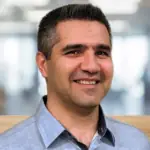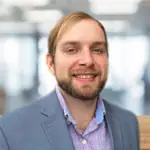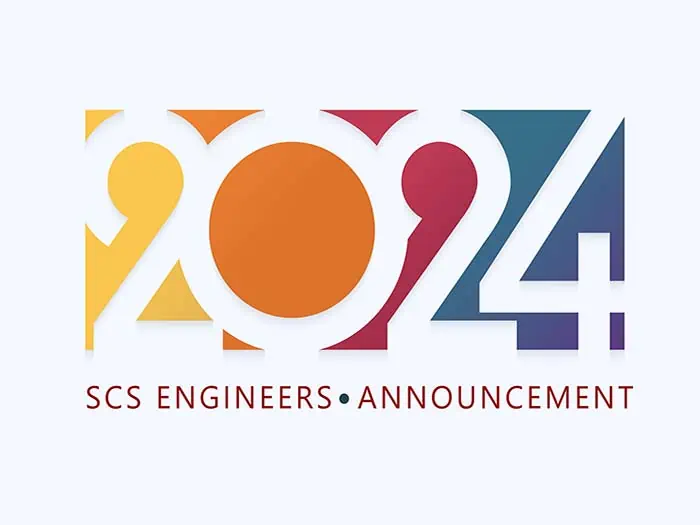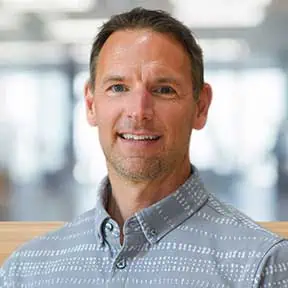

SCS Engineers is participating in the Georgia Tech ASCE/AEES 2024 Spring Civil and Environmental Engineering Career Fair on Thursday, February 1st, 2024.
Each year, Georgia Tech American Society of Civil Engineers (ASCE) and Association of Environmental Engineers and Scientists (AEES) co-host the Spring Civil and Environmental Engineering (CEE) Career Fair. This event is a great opportunity for all students and alumni to connect with a diverse array of employers, from corporations to nonprofits, for internships, part-time, and full-time positions. For company representatives who will be attending the career fair, this link contains valuable logistical information like times, parking, and table space details.
SCS is an employee-owned, award-winning environmental engineering, consulting, and construction firm with offices nationwide. We are seeking a wide variety of dedicated, hard-working professionals with Science, Technology, Engineering, and Mathematics (STEM) backgrounds.
Wastewater treatment is crucial to safeguard our water resources and the environment. Additionally, recycling wastewater is an excellent way to conserve this valuable resource, especially important for citizens and industry in the near future. At SCS Engineers, we specialize in the sustainable collection, treatment, and reuse of wastewater for municipalities and industries—our Landfill Leachate and Industrial Wastewater Treatment practice designs and implements these solutions.


SCS has a proven history of helping clients overcome their wastewater management issues. Treating and reusing wastewater is complex, but it is essential for many of our clients’ operations, sustainability objectives, and financial performance. With the addition of Kerim and Josh to SCS’s team, we have strengthened our technical expertise and capacity to tackle these challenges. ~ Nathan, Hamm, senior vice president and SCS’s national expert on Liquids Management.
This protocol applies to greenhouse gas reduction projects that divert eligible organic waste or agro-industrial wastewater streams that otherwise would have gone to uncontrolled anaerobic storage, treatment, and disposal systems (solid waste landfills, onsite anaerobic wastewater treatment facilities, etc.).
Projects that involve co-digestion of eligible organic waste streams with livestock manure are also eligible if they comply with the Livestock Project Protocol, diverting waste to a biogas control system (BCS). The protocol accepts several technologies, including:
Project Eligibility
The protocol stipulates the following requirements:
Project Exclusions
Protocol excludes the following activities:
Project Outcomes
A project is eligible to receive credits for ten years from the start date or until project activity is required by law. Applications for a second 10-year eligibility period are available. Only two AD facilities have registered with the Climate Action Reserve (CAR). CAR has awarded these projects a total of 224,655 CRTs, valued at approximately $700,000. In 2022, CAR awarded 22,257 CRTs to these projects. At a market price of $3.00/CRT, 22,257 CRTs have a value of $66,771.
Credit Feasibility
Understanding the technology and navigating protocol requirements can take time and effort. That’s where we come in. Contact SCS Engineers at or Greg McCarron on LinkedIn to learn how your project may qualify.
Additional Resources

SCS has a group of national experts working with all offices in North America to provide in-depth knowledge based on decades of experience supporting clients’ environmental needs. These resourceful people provide a wealth of information and guidance to support sustainable solutions in the industries SCS works in and with other professionals. Clients depend on the combination of SCS professional expertise, SCS leadership, and our roster of National Experts who consistently bring value to each solution. With the expanded leadership, SCS’s third generation can create even more sustainable solutions to environmental challenges. The firm announces its newest national experts as follows:








Over the years, SCS expanded and hired many talented people. They guide the firm, maintaining the founders’ focus and culture of adopting their clients’ environmental challenges as their own and fostering a culture of success for employees and communities.
The firm has won multiple awards for helping clients minimize waste generation, effectively managing recycling, collection, and disposal operations, renewable energy, safely cleaning up contaminated properties, protecting wastewater and groundwater, and cutting GHG emissions.
These employee-owners are most proud of the difference they make for their clients and communities as trusted partners. SCS clients entrust the firm with managing more than 35 million metric tons of anthropogenic CO2e greenhouse gases yearly. SCS collects and beneficially uses or destroys enough to offset greenhouse gas emissions from 7.4 million passenger cars annually. That’s more than any other environmental firm in North America.
Nicole Vogelpohl and Eva Luu attended the “Meet the Regulators” event hosted by A&WMA’s Golden West Chapter at the law firm Holland & Knight in San Francisco. It was an informative event where panelists Dr. Meredith Bauer, Hy Hinojosa, and Lisa Fasano, in for Viet Tran, from the Bay Area Air Quality Management District (BAAQMD), spoke about upcoming priorities, new organizational changes, current organizational issues, and project accomplishments. The three have recently been appointed new deputy executive officer positions at BAAQMD. They are open to taking things in a new direction regarding the permit process, communications with the public, and implementing new and upcoming methodologies for emerging analytical measurement technologies.
Environmental Justice and Air Quality
The panel discussed how, as we’ve learned and made continuous progress in air quality and local emissions reductions over the years, ozone (O3) is now less of a concern (for the Bay Area) compared to PM2.5, which now takes higher precedence as a pollutant of concern. Dr. Bauer and Lisa Fasano mentioned that in the grand scheme of things, we live in a region of great air quality; however, they acknowledge that while the greater San Francisco Bay Area has good air quality as a whole, there are always pockets of localized air pollution that need addressing. Areas specifically pointed out were marginalized communities, such as Bayview/Hunter’s Point and West Oakland. Coincidentally, SCS is currently involved in a project related to the SF Fire Department’s Training Facility moving from Treasure Island to Hunter’s Point. The goal is to ensure the air quality during their training burns will not have long-term downwind effects on the community.
Thorough Discussion Amongst the Panelists and Attendees — Permitting Backlog Issue
The current permitting system needs to be faster, and the backlog of processed permit applications poses challenges for new clients. Attendees expressed frustration and shared testimonies about their clients moving to different states due to the extensive permitting backlog and timely process, which has ultimately halted the emersion of some new regulatory technology and projects in the state. The regulators understand the current system needs reworking and prioritizing to ease and reduce the turnover time of the permit process.
Enlightening and Enjoyable
Hearing the regulators speak passionately about their roles, goals, and investment in the organization was truly pleasing. Thanks to Pat Sullivan for knowing and having worked with everyone we talked to; everyone said hi and spoke highly of you! At “Meet the Regulators,” we connected with stakeholders from local consulting firms, attendees from the petroleum, tech, and waste management industries, and regulators – or, as Dr. Bauer renamed the group, the communicators, to help bridge the gap between the governing board and the general public.
Additional Resources
In the realm of global sustainable development, engineering stands as a crucial pillar, driving innovation and progress. Women, representing half of the world’s population, play a pivotal role in this narrative, bringing diverse perspectives and innovative solutions to the forefront. One such trailblazer in the field is Anastasia Welch, whose contributions at SCS Engineers exemplify the impact women engineers can have on shaping a sustainable future.
With a keen eye for detail and a passion for environmental sustainability, women like Anastasia drive positive change in the waste industry. Here’s her journey, which we hope will inspire you.
Building Professional Experience
As a Vice President/Project Director, Ms. Welch utilizes her civil engineering background to affect solid waste-related projects in numerous states for both municipal and private clients. Throughout her career, Anastasia has focused on solid waste-related solutions ranging from design and compliance to planning. As a solid waste practice leader in the Central Region, Anastasia leverages her experience across the company to bring the appropriate personnel and work efforts to meet clients’ expectations and needs.
This month, she achieved a milestone in her career with her promotion to the Business Unit Director for SCS’ Central Region. She brings technical expertise and a unique perspective that enriches her team’s problem-solving capabilities. By influencing industry standards and promoting responsible environmental practices throughout the firm, her leadership extends beyond the Central Business Unit.
Project Experience
Mrs. Welch enjoys assisting her clients to help them meet their long-term goals. Anastasia is passionate about landfills and the waste systems that serve our communities. As of 2020, she is the Co-Chair of SWANA’s Landfill Re-Branding Committee, focusing on changing how the public views landfills. More recently, she has become much more involved with industrial clients, assisting them with their multimedia permitting and compliance needs.
Anastasia appreciates the details of technical compliance regulations by putting the pieces together, whether for a landfill or an industrial manufacturing facility. She excels by protecting our environment in a responsible way that still allows businesses to thrive.
Her specialty services areas include landfill design, transfer stations, solid waste planning, industrial facilities support, gas, stormwater, and environmental & industrial compliance.
Demonstrating a Passion for Environmental Engineering and Leadership
Anastasia’s dedication to details has proven instrumental in navigating the complex landscape of waste management and landfill design. Women engineers like Anastasia bring a holistic approach to problem-solving, ensuring that solutions are sound and environmentally responsible.
Anastasia’s role as Co-Chair of SWANA’s Landfill Re-Branding Committee exemplifies SCS Engineers’ proactive stance in reshaping industry narratives. By actively working to change public perceptions of landfills, she demonstrates the transformative power of combining technical expertise with effective communication and education.
Publications and Presentations
Anastasia actively contributes to the field through various publications and presentations, showcasing and sharing successful solutions. Noteworthy publications include “Developing a Master Plan for the City of Kirkwood, MO” and “Systematic Pathways to a Sustainable Waste Business.” Her presentations at conferences such as the Global Waste Management Symposium and the Missouri Waste Control Coalition Conference reflect her dedication to knowledge sharing and staying at the forefront of industry trends.
Education and Professional Licenses
Anastasia holds a B.S. in Civil and Environmental Engineering from the University of Missouri, Columbia, graduating in 2000. She is a licensed Professional Engineer in Kansas, Missouri, Iowa, and North Dakota, showcasing her commitment to maintaining high professional standards.
The Transformative Power of Women in Environmental Engineering
Anastasia’s journey is a story of dedication, expertise, and leadership, from her educational background to her technical and managerial experience. Anastasia demonstrates a passion for environmental sustainability and a commitment to excellence.
As we celebrate the achievements of women like Anastasia, we recognize the collective impact women engineers have on achieving sustainable development goals. Their contributions go beyond technical expertise; each brings a fresh perspective, resilience, and a commitment to leaving a positive mark on the world. By fostering inclusivity, encouraging mentorship, and championing diversity, we pave the way for more engineering women to be architects of sustainable progress. The journey of women in engineering and as environmental consultants, exemplified by Anastasia, is a testament to the endless possibilities when talent knows no gender or color.
SCS Engineers is an exciting, challenging, rewarding place to work that is nationally recognized as an industry leader. Join us in supporting businesses and communities throughout North America.
Carbon management often takes a holistic approach, combining one or more environmental solutions. The CO2 experts at SCS Engineers recommend looking at Graphyte’s hybrid technology approach for carbon casting, a new approach to carbon removal that leverages readily available biomass. The solution is backed and incubated by Bill Gates’ Breakthrough Energy Ventures. Here’s how it works…
Learn more about sustainable carbon management, carbon casting, carbon sequestration, and carbon reduction verification.
SCS Engineers announces that the firm’s Board of Directors elected Doug Doerr as President and Chief Executive Officer. James J. Walsh, the current President and CEO, will turn over his responsibilities to Doerr on January 1, 2024.

Doerr, a Senior Vice President, has over three decades of professional engineering experience spanning the firm’s solid waste and environmental services practices. He brings strategic direction and operations experience as SCS’s geographically largest Business Unit Director. Doerr also serves on SCS’s Board of Directors and was one of the founding principals of Aquaterra Environmental Solutions, Inc., which merged with SCS in 2013.
A Professional Engineer in six states, Doerr earned his Bachelor of Science in Civil Engineering at the University of Nebraska, Lincoln, and his Master of Business Administration at the University of Kansas. He serves clients in North America by providing technical expertise, primarily in the solid waste management and utility sectors.
As an engineer and consultant, Doerr prides himself on providing environmental solutions to address clients’ technical and regulatory challenges by understanding the business, economic, and social drivers that frame each challenge. Over his career, he has successfully implemented hundreds of environmental solutions that involve studies, permitting, compliance, and design across multiple market sectors for public and private clients.
“Our deep bench of engineers, scientists, consulting professionals, and environmental technicians are employee-owners who drive SCS as one company, keeping us sustainable for over 50 years. From our client’s perspective, our stability and holistic expertise bring a wealth of resources to achieve their goals,” says Doerr.
Walsh will continue to serve as Chair of the Board of Directors and assist Doerr as he transitions into the CEO role. Walsh also plans to spend more time on technical and client work as an expert witness, an authority on elevated temperature landfills, and an expert in the solid waste industry.
Under Walsh’s 22-year tenure, SCS Engineers and its specialty practices, SCS Field Services, SCS Energy, and SCS Tracer have grown tremendously. Walsh, senior executives, and the Board of Directors feel 2024 is an opportune time for the transition.
“We have a stellar reputation, we’re financially healthy, our Employee Stock Ownership Plan is strong, and we have the next generation of leadership ready to lead the company into the future,” states Walsh.
SCS Engineers’ environmental solutions and technology directly result from our experience and dedication to industries responsible for safeguarding the environment as they deliver essential services and products. SCS Engineers has captured or beneficially used more greenhouse gases than any other environmental engineering firm in the U.S. Please visit our website for a greeting from our CEO elect, or watch our video to see what we can do for your business and community.
This year’s annual Illinois Manufacturers Association Environment and Energy Conference attracted many attendees and presenters from industry, consultants, and regulatory officials. Notable takeaways included a passionate appeal from the Illinois Environmental Protection Agency (IEPA) to be patient and proactive on permitting issues as the agency expands its workforce to support Illinois manufacturers’ economic growth and expansion plans. IEPA notes that they seek a partnership with industry rather than an antagonistic relationship and strongly support the state’s development while acknowledging they are bound to federal regulations. The more timely, accurate, and clear permit applications can be prepared, the faster the approval process.
Clean Air Act Changes
Major focuses of the IEPA remain on tracking current and proposed National Ambient Air Quality Standards (NAAQS), which currently designate East St. Louis and Chicago areas as non-attainment zones for ozone and portions of Madison County as non-attainment zones for sulfur dioxide. Proposed reductions in the allowable limits for particulate matter (PM) 2.5 micrometers (µg/m³) under the Clean Air Act, which could go into effect at any time, will result in the designation of additional non-attainment areas in Illinois and, accordingly, far greater difficulty in air permitting for new or expanding facilities. The current annual average primary standard for PM 2.5 is 12 µg/m³, whereas the proposed standard will likely fall to between 9-10 µg/m³.
Permitting and Enforcement of NPDES
Presenters also noted that in Illinois, the IEPA issues National Pollutant Discharge Elimination System (NPDES) permits rather than the USEPA. However, USEPA can still issue enforcement violations. Furthermore, many wastewater treatment plants have pre-treatment effluent requirements for industrial users to address potential pollution problems as part of their NPDES permits. These requirements will become increasingly strict when/if PFAS are declared a hazardous substance under CERCLA.
Extended Producer Responsibility
Another noteworthy topic was the burgeoning practice of Extended Producer Responsibility (EPR). Much like RCRA, which requires cradle-to-grave tracking of hazardous materials, EPR deals with tracking non-hazardous materials, such as packaging, from creation through disposal with the goal of reducing landfill wastes via industry-subsidized source reduction and recycling programs. While Illinois is not currently one of the six states (California, Colorado, Maine, Oregon, New Jersey, and Washington) with mandated EPR or equivalent laws, multiple bills proposed in Illinois and elsewhere would require these types of programs for many market segments. Manufacturers are considering what steps they would need to take if a similar bill passes in Illinois. Particularly noteworthy is that these laws apply to states where products are distributed, not merely produced.
Sustainability and Decarbonization in the Energy Sector
Finally, presenters from various energy companies and consulting firms spoke about the path forward for sustainability and decarbonization in the energy sector, noting that it must combine natural gas, nuclear power, and traditional renewables like wind and solar to meet customer needs. SCS’s very own Dr. Charles Hostetler spoke on carbon capture methods (such as geologic sequestration of carbon in Class VI wells) and other operational strategies of manufacturers, electric utilities, solid waste facility owners/operators, and other property owners/developers to address the evolving landscape of environmental regulations.
Industry/Manufacturing Essentials
Keep close tabs on new legislation and regulation changes to assure compliance and avoid costly fines or operational delays. Partnerships with environmental consultants who have strong, established relationships with federal, state, and local agencies and have their finger on the pulse of the environmental landscape are the best way to accomplish your goals as the regulatory scene changes.

Capturing carbon dioxide and injecting it into a Class VI well for permanent geologic (carbon) sequestration, or CO2 storage, is a technology that industry leaders are using to decarbonize manufacturing processes. Utilizing CO2 storage allows manufacturers and industries to reduce greenhouse gas emissions and carbon footprints. The complexity of carbon sequestration projects can vary widely depending on your facility’s location.
In this 10-minute educational video, Geologist Kacey Garber describes the benefits and considerations of assessing the feasibility of carbon sequestration before entering the permitting process of a full-scale project. The resulting feasibility study helps develop your facility’s safest and most economical CO2 storage project.
The historical use of other injection well classes demonstrates the utility of injection wells for safe and permanent disposal or sequestration of fluids and GHG. As a result, large areas of the U.S. host viable CO2 storage resources. However, as Kacey explains, never assume that any given location is suitable for a Class VI injection well.
CO2 storage projects are a multi-decade commitment with significant technical, regulatory, and financial complexities. As such, industries must understand the financial impacts of a sequestration project, the regulatory framework, and the geologic suitability for Class VI injection in a given project location.
Additional Resources: